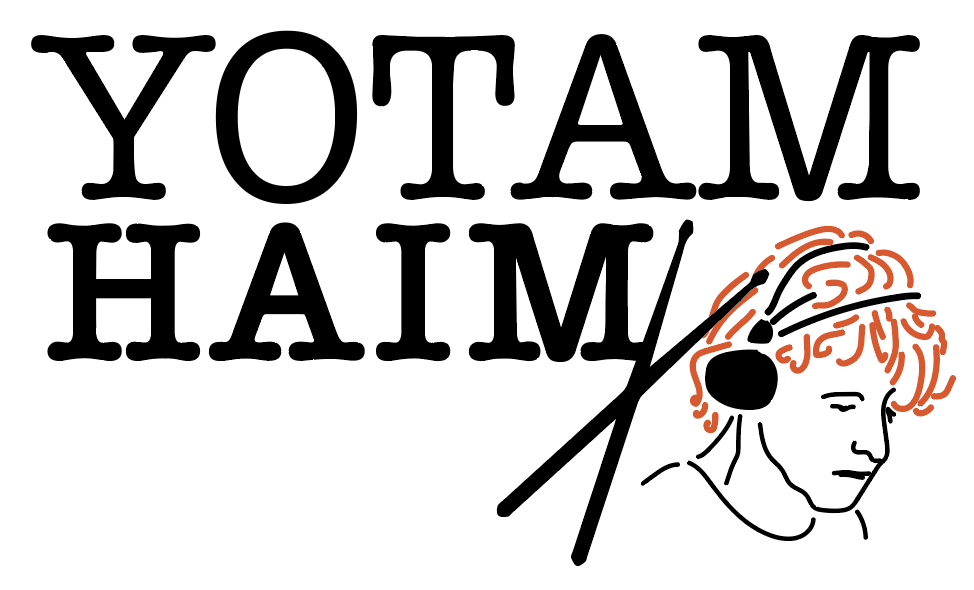On Freedom and Captivity – Iris Haim
The words “in Hamas captivity” send chills through each of us, as their relevance today is so present.
My son, Yotam Chaim, spent 65 days in Hamas captivity and five additional days free, outside of captivity.
During those 70 days, I refused to wear a necklace that said, “My heart is captive in Gaza.” Instead, I wore a necklace that said, “Believe to see the good.”
From the first day of this horrible war, I was free—free in my consciousness.
I chose not to be captive to the narrative being pushed by the media—that all the hostages were beaten, humiliated, and held in tunnels. Instead, from a place of freedom and liberty, I decided how I would perceive my son.
This, even though I knew nothing about his condition. Absolutely nothing.
I had the freedom to choose.
“In the light, not in the pit”—that’s what I said. Every day, I was free to choose how I saw my son: in a pit, as seemed logical, because that’s what everyone said, or in the light, because that’s what I believed. That was how I could stay strong and give strength to Yotam.
I chose to see Yotam in the light, and even when they told me he was in a tunnel, I gave myself the freedom to choose:
Was his spirit also in a pit?
No, his spirit was in the light—strong, resilient, and fighting. That’s what I wanted to believe.
Free consciousness was the only thing I had control over during Yotam’s captivity. The freedom I took for myself was to not cling to the conventions I had before October 7th—conventions about different sectors, political views, beliefs, or genders.
During that time, I broke free from the captivity of preconceived notions—“All ___ are like this” and “All ___ are like that.”
On October 7th, my son was kidnapped from his apartment in Kibbutz Kfar Aza, where he had lived for two and a half years. It was a lively neighborhood full of greenery, where students and young people, aged 20 to 30, lived without children.
Yotam was a talented musician, a drummer in a band, and all he wanted was to keep playing and become a famous drummer.
Yotam, 28 years old, a redhead with blue eyes and tattoos all over his body, was mistakenly identified as a terrorist by an IDF soldier, shot, and killed on December 15th, 2023.
The automatic reaction to such a horrific event would be to be angry and blame the army for the terrible mistake.
But my family, my husband, my children, and I called out to strengthen the soldiers—without anger, without blame.
Captivity is a state of mind. Continuing to live with anger at someone who wronged you is to remain captive to that person.
I worked on releasing anger and blame many years ago through personal processes that helped me rid myself of an emotion that, for me, was difficult and prevented me from moving forward in life.
The phrase “My heart is captive in Gaza”—as I see it—while well-intentioned, conveys the message that I allow Hamas to control my consciousness. I’m giving them my heart, and in doing so, I fail to separate myself from the situation.
When I wore the necklace “Believe to see the good,” I continued to worry for my son, continued to hope for his return, but from a positive, powerful place.
The message I sent to Yotam, to myself, and to all of Israel was—and still is:
“I’m here, Yotam. My heart is here, thinking of you. I believe in you, I see your strength and your power, and I know you are coming home soon.”
Every word we choose can either set us free or keep us captive.
A few days ago, I met with bereaved families. I asked each one of them to tell me about their son or daughter.
Without exception, they all used words like “murdered,” “victim,” and “abandoned”—words that perpetuate the harsh and terrible reality of why their child is no longer alive.
I use different words:
“Yotam was freed; he is free now. He was physically captive, but I know that his spirit was always free. He longed for freedom, and he received his freedom.”
I wish for all of us to be able to break free from the captivity of our own preconceived notions, from the captivity of generalizations, from the need to remain within rigid frameworks, and into true mental freedom.
Iris

